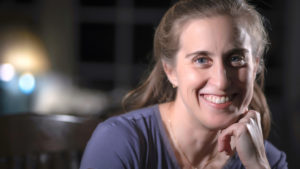Why Patients Lie to Their Doctors
Fear of being judged and embarrassed are among the reasons
Salt Lake City – When your doctor asks how often you exercise, do you give her an honest answer? How about when she asks what you’ve been eating lately? If you’ve ever stretched the truth, you’re not alone.
Sixty to 80 percent of people surveyed have not been forthcoming with their doctors about information that could be relevant to their health, according to a new study. Besides fibbing about diet and exercise, more than a third of respondents didn’t speak up when they disagreed with their doctor’s recommendation. Another common scenario was failing to admit they didn’t understand their clinician’s instructions.
When respondents explained why they weren’t transparent, most said that they wanted to avoid being judged, and didn’t want to be lectured about how bad certain behaviors were. More than half were simply too embarrassed to tell the truth.
“Most people want their doctor to think highly of them,” says the study’s senior author Angela Fagerlin, Ph.D., chair of population health sciences at University of Utah Health and a research scientist with the VA Salt Lake City Health System’s Informatics Decision-Enhancement and Analytic Sciences (IDEAS) Center for Innovation. “They’re worried about being pigeonholed as someone who doesn’t make good decisions,” she adds.
Scientists at University of Utah Health and Middlesex Community College (MxCC) in Middletown, Conn., led the research study in collaboration with colleagues at University of Michigan and University of Iowa. The results are published online in JAMA Network Open on November 30, 2018, and can be found at this link: https://jamanetwork.com/journals/jamanetworkopen/fullarticle/2716996.
Insights into the doctor-patient relationship came from a national online survey of two populations. One survey captured responses from 2,011 participants who averaged 36 years old. The second was administered to 2,499 participants who were 61 on average.
Survey-takers were presented with seven common scenarios where a patient might feel inclined to conceal health behaviors from their clinician, and asked to select all that they had ever happened to them. Participants were then asked to recall why they made that choice. The survey was developed with input from physicians, psychologists, researchers and patients, and refined through pilot testing with the general public.
In both surveys, people who identified themselves as female, were younger, and self-reported as being in poor health were more likely to report having failed to disclose medically relevant information to their clinician.
 “I’m surprised that such a substantial number of people chose to withhold relatively benign information, and that they would admit to it,” says the study’s first author Andrea Gurmankin Levy, Ph.D., MBe, an associate professor in social sciences at Middlesex Community College. “We also have to consider the interesting limitation that survey participants might have withheld information about what they withheld, which would mean that our study has underestimated how prevalent this phenomenon is.”
“I’m surprised that such a substantial number of people chose to withhold relatively benign information, and that they would admit to it,” says the study’s first author Andrea Gurmankin Levy, Ph.D., MBe, an associate professor in social sciences at Middlesex Community College. “We also have to consider the interesting limitation that survey participants might have withheld information about what they withheld, which would mean that our study has underestimated how prevalent this phenomenon is.”
The trouble with a patient’s dishonesty is that doctors can’t offer accurate medical advice when they don’t have all the facts.
“If patients are withholding information about what they’re eating, or whether they are taking their medication, it can have significant implications for their health. Especially if they have a chronic illness,” says Levy.
Understanding the issue more in-depth could point toward ways to fix the problem. Levy and Fagerlin hope to repeat the study and talk with patients immediately after clinical appointments, while the experience is still fresh in their minds. Person-to-person interviews could help identify other factors that influence clinician-patient interactions. For instance, are patients more open with doctors they’ve known for years?
The possibility suggests that patients may not be the only ones to blame, says Fagerlin. “How providers are communicating in certain situations may cause patients to be hesitant to open up,” she says. “This raises the question, is there a way to train clinicians to help their patients feel more comfortable?” After all, a healthy conversation is a two-way street.
# # #
“Prevalence of and Factors Associated with Patient Nondisclosure of Medically Relevant Information to Clinicians” publishes online in JAMA Open Network on Nov. 30, 2018.
In addition to Fagerlin and Levy, Aaron Scherer from University of Iowa, Brian Zikmund-Fisher and Geoffrey Barnes from University of Michigan, and Knoll Larkin from Wayne State University were co-authors on the study.
University of Utah Health provides leading-edge and compassionate medicine for a referral area that encompasses 10 percent of the U.S., including Idaho, Wyoming, Montana and much of Nevada. A hub for health sciences research and education in the region, U of U Health touts a $356 million research enterprise and trains the majority of Utah’s physicians and more than 1,250 health care providers at its Schools of Medicine and Dentistry and Colleges of Nursing, Pharmacy and Health. For eight straight years, U of U Health has ranked among the top 10 U.S. academic medical centers in the rigorous Vizient Quality and Accountability Study, including reaching No. 1 in 2010 and 2016.
Since 1966, Middlesex Community College has provided high-quality, affordable, and accessible education to a diverse population, enhancing the strengths of individuals through degree, certificate, and lifelong learning programs that lead to university transfer, employment, and an enriched awareness of our shared responsibilities as global citizens. A part of the Connecticut State Colleges and Universities system, MxCC offers more than 70 degree or certificate programs at the 35-acre campus in Middletown, MxCC@Platt in Meriden, and online.
Summary:
Up to 80 percent of those surveyed have lied to their doctor about information that could impact their health, including describing their diet and how often they exercise. Survey participants explained that they wanted to avoid being judged and didn’t want to be lectured about how bad certain behaviors were. The research was led by scientists at University of Utah Health and Middlesex Community College.

